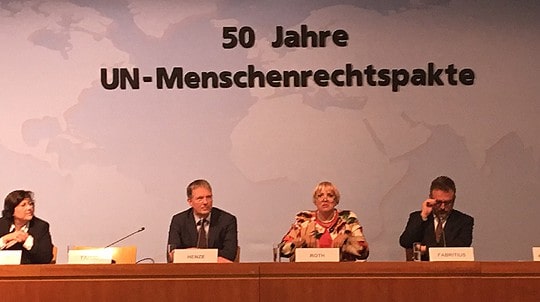Two important United Nations covenants turn 50 years old this year: the International Covenant on Civil and Political Rights (ICCPR) as well as the International Covenant on Economic, Social and Cultural Rights (ICESCR). Both treaties are of great significance for civil society organisations around the world, including trade unions, disabled federations and human rights groups. Unfortunately neither covenants is very well known.
The way in which the two treaties work in spite of the lack of public perception was at the centre of a recent conference held by the German Institute for Human Rights at the foreign ministry in Berlin. Among others, the United Nations High Commissioner for Human Rights, the Jordanian Zeid bin Ra’ad Al Hussein, attended the event in order to call for the necessary implementation of human rights.
Apart from the rights of women and children he also insisted that the rights of lesbian, gay, bisexual and transgender (LGBT) people – who still face legal prosecution in many countries – must be strengthened. It also still isn’t self-evident in all societies for people with disabilities to have the same rights as others.
In his speech, the German Foreign Minister, Frank-Walter Steinmeier, highlighted the situation of refugees around the world and emphasised the human right to asylum, which, as we can currently see very clearly, is being interpreted in very different ways in various countries.
So what exactly are the two UN covenants about?
The ICCPR is a treaty that governs civil and political right while the ICESCR concerns itself with economic, social and cultural rights. Both treaties were discussed by the international community for almost two decades before finally being passed by the UN General Assembly in 1966. One of the issues regulated in the “civil pact” is the prohibition of torture and the right to life. The “social pact” meanwhile postulates the right to social security and the right to work to name just two topics. All signatory countries have committed to contribute to the implementation of these as well as all other rights formulated in the treaties on their respective national levels. However, the contracts are not legally binding.
When they were signed in 1966 the two documents were treaties of a fundamental nature. Their relative obscurity today may partly be explained by the fact that numerous other, more monothematic human rights treaties have been signed in the years since, including the UN Convention on the Elimination of all Forms of Discrimination Against Women (CEDAW) in 1979 and the UN Convention against Torture in 1984. 50 years on, 168 countries are signatories to the civil covenant and 164 countries have signed the social covenant. However, among the significant non-signatory countries are the United States and China. In Germany, the constitution is seen as the legal framework that largely implements the treaties’ provisions. In other places around the world there are big deficits in terms of the implementation, especially in war-torn regions and in countries with a weak statehood.
But even if that is the case: the question remains what the world would look like without these objectives – and without the constant international discussion about human rights upon which they are based. The answer, I fear, is: much worse. That’s why I applaud the fact that the international community was able to agree on the treaties such a long time ago. They constitute a solid foundation on which to base the fight for all elements of the covenants to fully come into effect.

 Monika Griefahn GmbH
Monika Griefahn GmbH
Leave a Reply